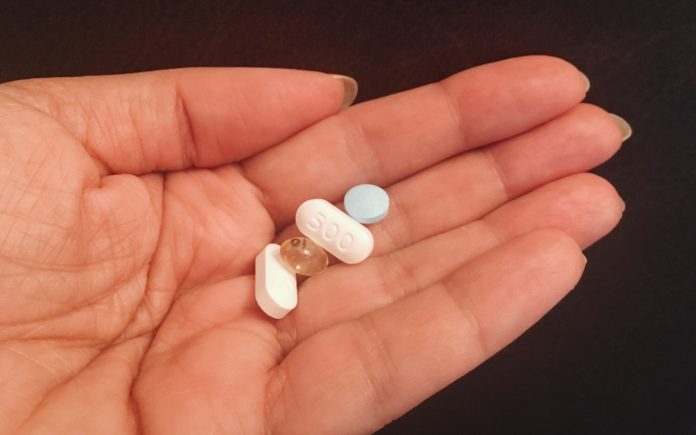I read an article (1) recently on the nocebo effect, which is the opposite of the placebo effect. When a person expects a side-effect of a medication or treatment, or believes that something may help or harm them, they are more likely to experience this, even when the treatment itself is inert. When the effect appears healing, it is called the placebo effect, and when it appears to harm, this is called the nocebo effect.
Pain seems particularly susceptible to both placebo and nocebo effects, and both can be triggered by words as well as medication.
In a study of epidural anaesthesia during childbirth, the women who were told that the injection of local anaesthetic would feel like “a big bee sting; this is the worst part” reported significantly more pain than those told that it “would numb the area and you will be comfortable during the procedure”. (2)
The effect appears to be largely psychological, as shown by a study of beta-blocker treatment for hypertension which found that 32% of the patients who were explicitly warned that erectile dysfunction was a possible side effect experienced the problem, compared with only 13% of those who were not warned. (3)
An ethical dilemma
This raises an ethical dilemma for us as doctors. We are required not just to inform patients of the potential complications of treatment, but also to minimise the likelihood of these complications occurring, and to avoid inducing them through the potential nocebo effect of our process of informed consent.
How do we resolve this dilemma? It is not about refusing to inform or withholding information, for we have a duty of care to our patients to fully inform them of the risks and benefits of all the treatments we offer them. But the way we say it matters immensely. We can say it in a way that puts potential risks and harms in perspective and emphasises the benefits of treatment, or we can say it in a way that makes potential side-effects far more likely to be experienced. And we can say it in a way that is defensive, to tick boxes and reduce the risk of us being sued, or we can take the time and care to say it in a way that allows our patients to feel that we care for them and have their health and wellbeing at heart.
Words are powerful
Words are very powerful. We have known this for a long time in terms of their power to heal, and we have called this the placebo effect, but we have been less willing to look at the fact that the converse, the nocebo effect, can also be true.
We communicate, not just with our words, but with our manner of expression, and our way of being, and all have the power to either harm or heal. There is no neutral, no middle ground, no sitting on the fence.
The way we are with people is either loving and caring, and can help them, or it is not, and this can hurt them.
This is an awe-inspiring opportunity and responsibility for us all to feel… it empowers us, for we come to realise that the way we are with people makes such a difference, as much as, if not more than, what we do with or to them…
Are we ready for this? Are we willing to feel that our manner of being matters, just as much as our manner of doing? Are we willing to bring all of ourselves to every encounter… not holding back an ounce of who we are, not calibrating our love and care depending on who we are dealing with?
Are we as loving with our patients as we are with our family and friends?
Are we as loving with our families as we are with the people at work?
Some of us find it easier to be ourselves in some situations than in others, and with some people more than others. I know for myself, the hardest people for me to be around are my professional colleagues… I can still have a nagging feeling that I am not good enough, that I will be seen as a failure or a fraud… there is no sense in this, just the slight hangover of years of feeling inferior as a student and trainee… of treating myself as less than others and being treated accordingly in return.
The way we are with our trainees in general is not nearly appreciative enough, and this reflects the way we are with ourselves. We spend little time and energy appreciating ourselves when we do something well, and spend even less time appreciating ourselves just for who we are as people, irrespective of what we do, and we tend to treat our trainees in the same way.
This can carry over into the whole of our lives… the nagging doubt in our own abilities, the fear that we will fail, the ever-present dark cloud of foreboding that we will make a mistake… and the lack of valuing ourselves, of feeling worthy as a doctor and as a person… and this negative self-talk is our very own nocebo effect, that we then tend to carry into our communications and relationships with others.
Can we bring a level of appreciation of our power to heal with words into our everyday lives?
Can we be loving in our expression with everyone we meet, irrespective of who they are and what they do or do not do?
Can we appreciate the power of just being us, and how healing that can be for ourselves and for others?
This is the opportunity and the inspiration I will be taking into my day today…
References:
-
Nocebo and informed consent: words matter, MJA Insight, 20 November 2017
- Nocebo-induced hyperalgesia during local anesthetic injection. Anesth Analg. 2010 Mar 1 https://www.ncbi.nlm.nih.gov/pubmed/20042440
- Erectile dysfunction after therapy with metoprolol: the Hawthorne effect. Cardiology. 2009;112(3):174-7. doi: 10.1159/000147951. Epub 2008 Jul 24.
https://www.ncbi.nlm.nih.gov/pubmed/18654082










Great read and testament to the power of words and the way we use them. I love how you introduce self-talk into the equation, especially because we could likely all relate to speaking harshly about oneself, instead of deeply appreciating who we are and what we bring to the table, not just in medicine but also to life.
Thank you Stephanie, yes, I feel the negative self-talk is actually the heart of this problem…I know that as I have become less harsh with myself, I have naturally become more genuinely kind and caring with others and the way I am with them…no need for niceness and politeness now, I just offer real love and care!
I loved this, so strong: “Are we ready for this? Are we willing to feel that our manner of being matters, just as much as our manner of doing?” A great read, very relevant to teaching as when with students I can feel the power of my words and how they can either activate and inspire or denigrate and be dismissive. Appreciating that the power in our words come from the quality of how we are with ourselves, is fundamental. Healing or harmful, there is no fence sitting.
Thank you Peta. I agree, and am also learning that the way I express to others is a direct reflection of the way that I am with myself…I used to give myself such a hard time, and could therefore at times be harsh with others, especially those close to me whom I claimed to love, but now that I rarely give myself a hard time, I am rarely less than loving with others, either…
Wow! You have covered so much that feels essential for us to be exploring in our practice. I have found the way I am with people has a very powerful effect on people, way more than anything I can ‘do’. I have found that healing quality of my voice is very powerful when it is expressed from a quality of stillness within me. That quality comes through the vibration in my voice and has a very settling and reassuring feel for families and patients. I can also relate to that feeling of not being enough. It is engrained in our training years, where we constantly feel like we are scrambling to know more. But I am sure it starts a lot younger than that. What I realised lately is that not feeling enough sets us up to be busy and to ‘do more’ in order to feel enough. That then erodes that quality of stillness that is so essential to support patients to heal.
So true, Fiona. I too have found that the more I value myself just for who I am, the less I feel compelled to do more, to make up for the feeling of never being enough, and the more able I am to just be with people, which is healing in and of itself.